Travel Information
Gdansk, Poland
COST administration:
Note that COST funding describe below (a) is not available to local (Gdansk) participants nor to participants from non-EU (COST participant, as defined in the Vademecum) countries (but coffee breaks will be provided) and (b) is only applicable after you receive an official invitation via e-COST. You have received an invitation if you are a Management Committee member (or MC substitute when the MC members for your country are not available). To apply for an invitation if you are not an MC member/subtitute, go to the registration page. Note that local participants also need to register. They will then also receive an invitation via e-COST (which will mention that as local participants, they will not be funded).
- The allowed hotel cost per night for this meeting is 110Eur. Breakfast is not re-imbursed by COST, so it must be included in the hotel cost.
- The maximum flight cost for this meeting is 400Eur. If you go above this amount, you have to provide proof via e.g. skyscanner that there are no cheaper flights than yours. With this information, you should then request permission for the higher cost before you buy your ticket by contacting Hans.Vangheluwe@uantwerpen.be. Note that this limit was a necessary condition to get our Work and Budget Plan approved. All reasonable requests will be accepted.
- Lunch and dinner are paid based on a flat rate (no receipts required) of 20Eur/meal. The local organizers will arrange meals for us which we will pay for individually from this 20Eur/meal.
- Note that when the new budget got approved, COST again activated "strong authentication". This is incorrect however and will be changed shortly. This means you will have to send by post, your bills and signed TRR, even though the e-COST system will tell you otherwise.
Local organization:
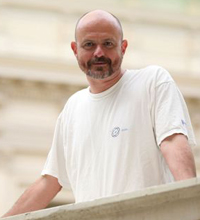
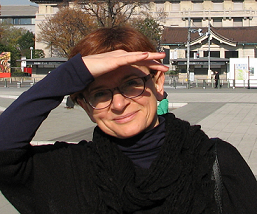
- dr hab. Maria Ganzha, prof. nzw.
- Division of Artificial Intelligence and Computational Methods
- Faculty of Mathematics and Information Science
- Warsaw University of Technology
- Koszykowa 75
- 00-662 Warszawa, Poland
- Tel: (+48 22) 234 76 66
- Email: Maria.Ganzha@ibspan.waw.pl
- Dr. Marcin Paprzycki, Associate Professor
- Systems Research Institute of the Polish Academy of Sciences
- Newelska 6, 01-447 Warsaw, Poland
- Email: Marcin.Paprzycki@ibspan.waw.pl
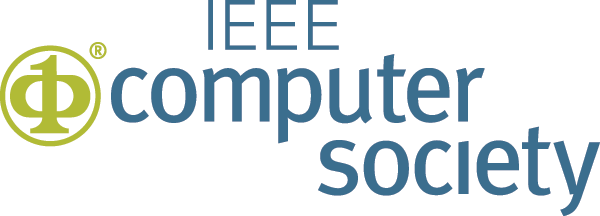

Location:
The event takes place at the
- Building 42 of the Gdańsk University of Technology (the blunt three-sided star shaped one)
- Department ETI
- Gdańsk, Poland, as shown on the map below.
- Wednesday and Thursday meetings take place in NE 005; Friday meetings take place in NE 005 and NE 104.
Getting to Gdansk:
BY PLANE
Gdansk Lech Walesa Airport is located 15 km from Gdańsk city center with flights to many cities in Europe.
The airport is well-connected with the city center of Gdańsk and Gdynia (taxis, buses, shuttles, car-rental options).
The airport is served by Star Alliance airlines: LOT, Lufthansa, and SAS, each of which operates 3-7 flights a day to their hubs in Frankfurt, Munich, Warsaw, Copenhagen, and other airports.
Budget airlines serve destinations in Germany, the UK, Ireland, France, Italy, Spain, Sweden, Norway, and Finland. For more information, see the airport website.
It is also possible to fly to Warsaw Frederic Chopin Airport and connect to a domestic flight to Gdańsk or take an Intercity train (connections every 1-2h, trip duration 3h).
 |
GDANSK LECH WALESA AIRPORT Słowackiego Street 200, 80-298 Gdansk phone +48 525 673 531 fax +48 58 345 22 83 www.airport.gdansk.pl |
BY TRAIN
Polish Railways (PKP) provide direct connections from Gdansk to all major Polish cities and to Berlin. Estimated travel time is 3h from Warsaw, 6h from Berlin.
Gdansk Glowny Railway Station is located in the city center, in the heart of downtown, at Podwale Grodzkie Street 2. The Gdansk main station is part of an important rail-tram-bus hub. The building is connected via underground passage to a bus station, located at 3 Maja Street.
The meeting venue can be reached by train from the airport (Gdansk Port Lotniczy) to Gdansk Wrzeszcz. The trip takes about 22min. Near Gdansk Wrzeszcz, at tram stop Klonowa, trams 9, 11, or 6 will take you to tram stop Politechnika. This is the third stop. The ride takes about 3 minutes. From there, you can walk to the meeting venue.
 |
GDANSK GLOWNY Railway Station Podwale Grodzkie 2, 80-895 Gdańsk phone +48 58 721 31 97 http://pkpsa.pl/en/ |
BY CAR
There are three main routes into the Tri-city: the E28 from the West via Gdynia; the E77 from the South-East which enters the city via Gdansk and the A1 highway from the South.
Travel time by car is 3-4h from Warsaw and 6h from Berlin. Two ferry connections operate to Sweden: Polferries has a daily ferry between Gdańsk and Nynashamn near Stockholm, and Stena Line operates 2 ferries a day between Gdynia (20 km from Gdansk) and Karlskrona.
Parking is available once you arrive in Gdansk but remember that the old town area is permit parking only and you will be fined by the city police for driving into the old town without a pass. Watch out for the signs marking the start of the permit parking zone. You will have to use street parking which is paid for (3zł for the first hour) and you will need to buy a ticket at the street machine.
BY BUS
GDANSK GLOWNY Bus Station
3 Maja Street 12, 80-802 Gdansk
phone +48 58 323 81 00
fax +48 58 323 81 79
http://www.pks.gdansk.pl
GETTING AROUND
SKM Train: Travelling between the three cities of Gdańsk, Gdynia and Sopot is extremely easy and best done using the SKM kolejka (commuter train). These yellow and blue trains run more or less every 10-15 minutes between 05:00-19:00 through the Tri-city and less frequently outside of these hours with trains also running occasionally between 00:00 and 04:00.
Tickets can be bought from modern ticket machines which can be found on most platforms and have instructions in English and a couple of other languages. Alternatively you can buy tickets in main stations where you see the sign for "Kasa Biletowa" or as a last resort from the conductor at the front of the train. If you buy tickets from the "Kasa Biletowa" make sure that you stamp them with the time in the bright yellow boxes on or close to the platform to validate them.
Ticket prices are dependent on the number of stops you are travelling but a journey from Gdańsk to Gdynia will cost 6.00zł and take about 35 minutes (Sopot will cost 4.00zł and take about 20 minutes). Bikes travel for free and should be carried in a specially marked carriage usually at one end of the train. Children under 4 travel for free although you also have to buy a 0zł ticket (we kid you not) and you are likely to be requested to provide proof of the child‘s age so basically keep passports on you at all times. ISIC cards will get you a student discount but only if you're a Polish student, while Euro 26 cards are not valid. You will have to pay a fine if caught travelling without a validated ticket by one of the plain clothes inspectors.
Please note! SKM Trains run on tracks like trains and the carriages look like trains but the platforms are separate.
Taxi: Official taxis are clearly marked and reasonably priced, usually displaying a five-digit phone number. Transfers from the airport to the city center cost about 40-80 PLN, while trips within the downtown area usually cost not more than 15-25 PLN. To avoid being overcharged, make sure to have cash in PLN ready. The taxi driver is required to give you a printed receipt and is expected to give you exact change. Tipping is not required; rounding up the fare to the nearest multiple of 5 PLN would be considered more than sufficient.
Note that COST does not reimburse taxis from/to airport/train/... unless used between 11pm and 7am.Bus and tram: Gdansk has a well-developed bus and tram network (including airport buses and night buses) with time-tables and maps available online. Regular commuter trains connect Gdansk, Sopot, and Gdynia (every 7 minutes in the rush hour). Use jakdojade.pl to find connections within the metropolitan area.
Several car hire options are available at Gdansk Airport.
Getting to the meeting venue
Tram from the central railway station to the meeting venue
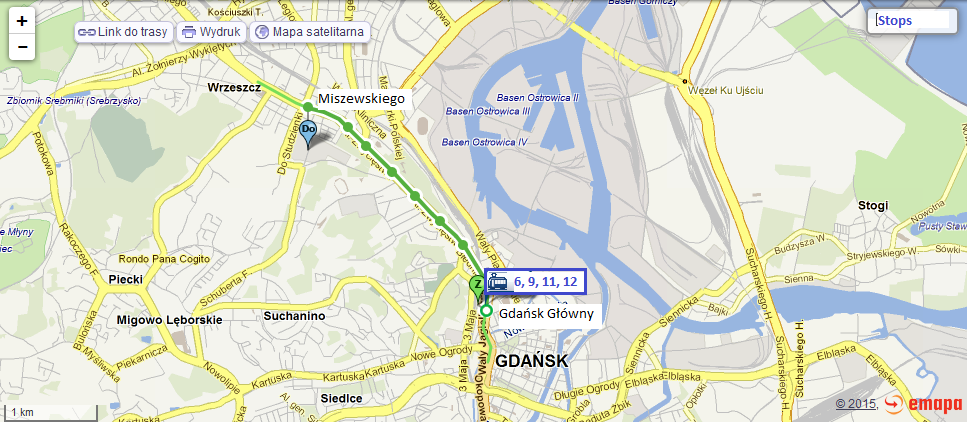
SKM from the central railway station to the meeting venue
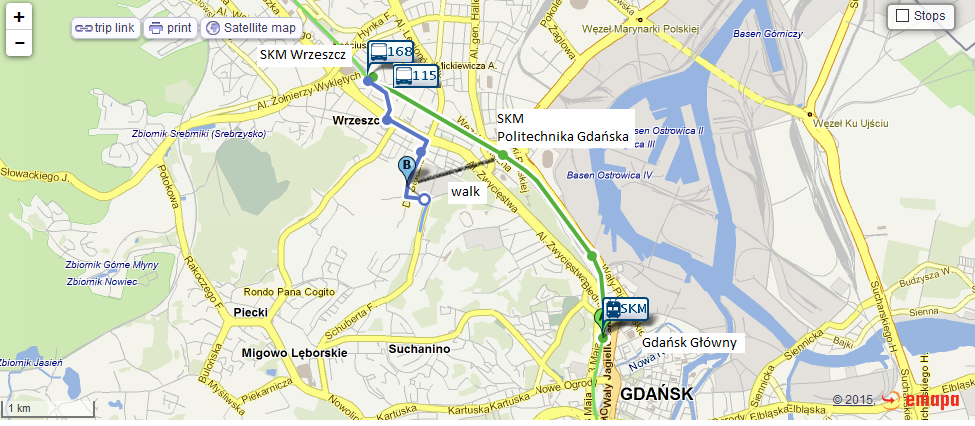
Bus from the airport to the meeting venue

Wrzeszcz railway station scheme
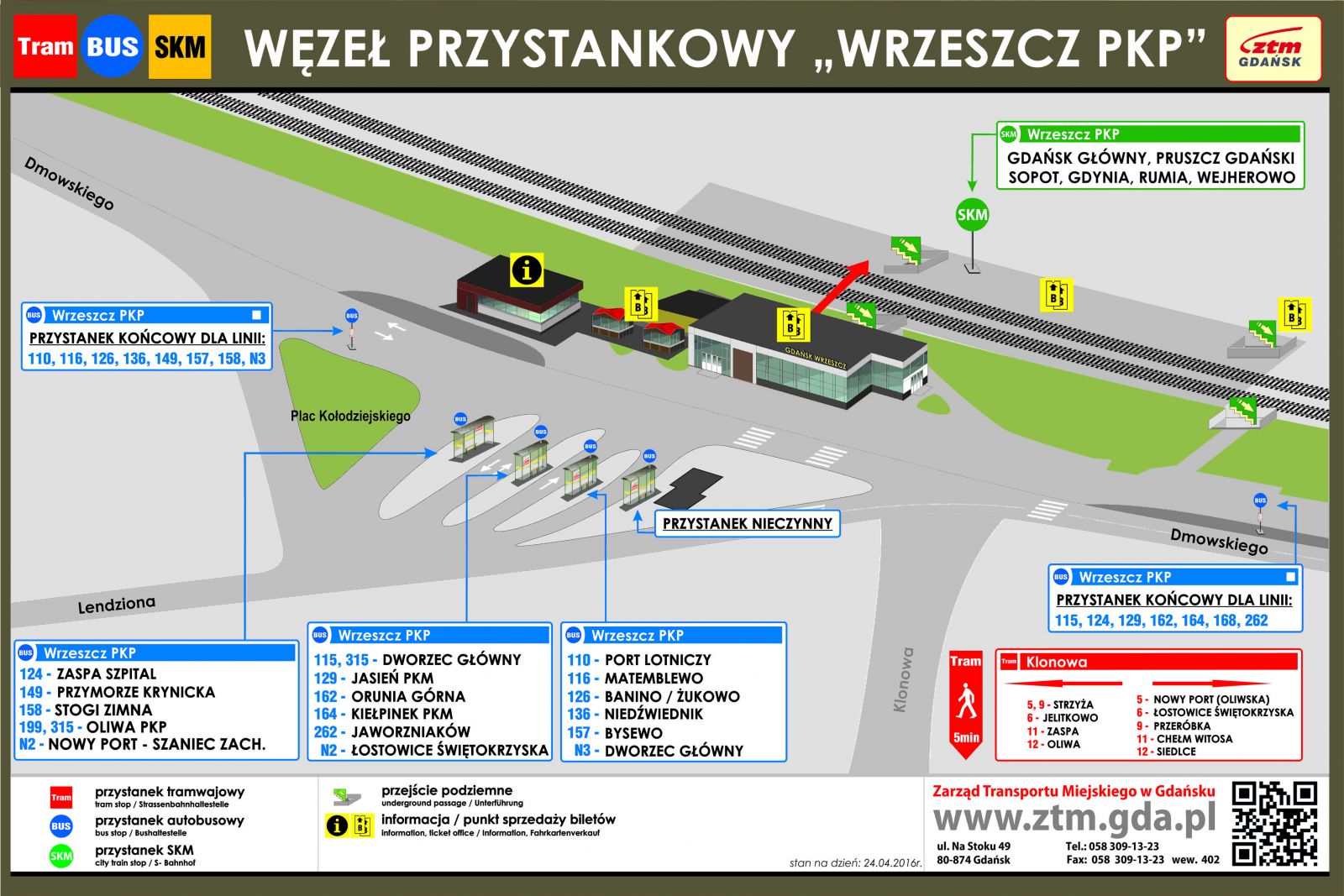
Hotels (walking distance)
Foreign currency
The currency in Poland is PLN - Polish Zloty (rough exchange rates: 1 EUR = 4,2 PLN, 1 USD = 3.8 PLN). All major credit cards are widely accepted, though some small businesses and taxis will take cash payments, only. There are one or two ATM-s located in the arrival hall of Gdansk airport, and plenty throughout the city center. You can also find several money changing boutiques in the downtown area which offer reasonable exchange rates (avoid money-changers at the airport!).
When using a foreign credit card, the card terminal or ATM may offer you the possibility of payment directly in your currency (EUR, GBP, USD). You will usually be slightly better off turning down the offer, and going for the currency conversion offered by your home bank.
Electricity
Voltage: 220-240 volts, European – type of plugs, two-pin plugs.
Gdansk emergency phone numbers:
| European emergency number for mobile phones | 112 |
| Police | 997 |
| Fire Brigade | 998 |
| Ambulance | 999 |
| Municipal Police | 986 |
 COST is supported by the EU Framework Programme Horizon
2020 COST is supported by the EU Framework Programme Horizon
2020
|
||
| Do you feel you can contribute to MPM4CPS? Become a collaborator! Fill the form. The reports of the completed 2015 - 2018 STSMs can now be consulted here. |
||
| The MPM4CPS Training School (18 - 21 November 2018) and Closing Conference (22 - 23 November 2018) took place in Pisa, Italy. |
||

